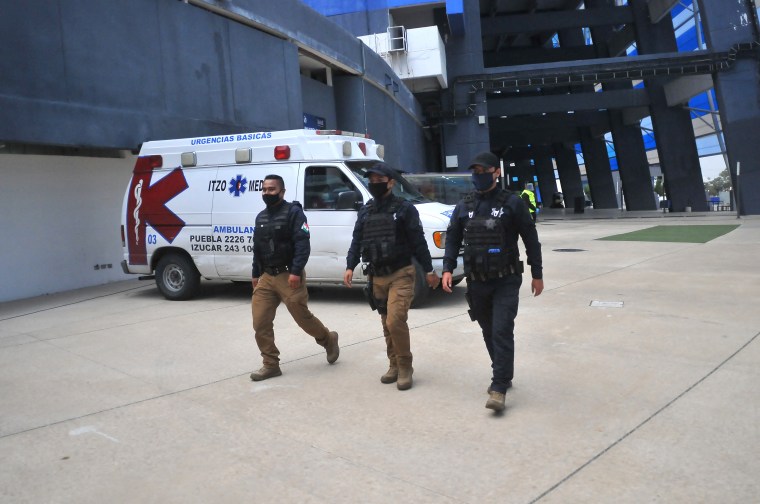Mexico City, September 16, 2022—Mexican authorities must immediately and properly investigate threats against journalist Rodrigo Bustillos and guarantee his safety, the Committee to Protect Journalists said Friday.
Bustillos, a veteran reporter based in Tehuacán in the central Mexican state of Puebla, currently works for privately owned news sites Domingo7 Tehuacán and Grupo Entiempo Comunicaciones, which post their coverage on Facebook. Bustillos told CPJ by phone on Wednesday, September 14, that two unidentified gunmen threatened him over his reporting the previous day. Bustillos said that the men approached him on a motorcycle around 4:30 p.m. while he walked on a street near the center of Tehuacán, a town about 150 miles southeast of Mexico City.
“One of them embraced me and showed me a pistol,” Bustillos said. “He said I should stop reporting. He took out the magazine of the gun, showed me the bullets and said that if I didn’t do as he said, that those would be for me.”
The other man waited on the motorcycle, Bustillos said, adding that he was not physically harmed during the incident. Bustillos said the men did not refer to specific coverage, and believes they may be affiliated with Las Burras, a local criminal gang linked to several violent incidents in the area in recent months, according to news reports.
“The brazen threat against Rodrigo Bustillos is more shocking evidence that reporters are targeted everywhere in a country that is experiencing a horrifically deadly year for the press,” said Jan-Albert Hootsen, CPJ’s Mexico representative. “Mexican authorities must immediately guarantee Bustillos’ safety, determine the identity of his attackers, and bring them to justice.”
Bustillos said he covers a wide range of topics, including crime and safety. Most news articles and videos uploaded to the websites do not carry a byline, according to Bustillos, in some cases out of concern for the safety of the reporters.
On Sunday, September 11, Bustillos covered the discovery of a clandestine burial site in Tehuacán. According to his reports, which cited anonymous local law enforcement sources, the grave may have been used by Las Burras to dispose of victims. In another Domingo7 report by Bustillos on Wednesday, September 14, an alleged leader of the Las Burras gang was arrested in the wake of the discovery.
In recent weeks, there have been several shootings and executions that killed at least six people and that local law enforcement attributed to criminal gangs in Tehuacán, Bustillos said. One victim was a policeman fatally shot on September 5, according to a Primera Línea report.
Bustillos said he believes the threat may have been directly related to his coverage of the the gravesite and the gang leader’s arrest. He is still considering whether he will report the threat to authorities. “Reporting to local authorities here can frankly be risky, because there’s a lot of corruption. I’m not sure if I can trust them,” Bustillos said.
On Thursday, September 15, CPJ made several calls to the Tehuacán municipal government for comment, but the calls were not answered. (September 15 is a national holiday in Mexico.) CPJ made several attempts to reach the editors of Domingo7 and Grupo Entiempo via phone, but the calls were not answered.
CPJ helped the journalist contact the Federal Mechanism for the Protection of Human Rights Defenders and Journalists, which operates protection programs sanctioned by the federal government in Mexico City. On Wednesday, September 14, both Bustillos and a group official, who asked not to be named, confirmed via WhatsApp that the journalist is in the process of being enrolled in a protection program.
Mexico is the deadliest country in the Western Hemisphere for journalists. A record 13 journalists were killed in the country this year so far, according to CPJ research. At least three of the reporters were killed in direct relation to their work. CPJ is investigating another 10 killings to determine the motive.
